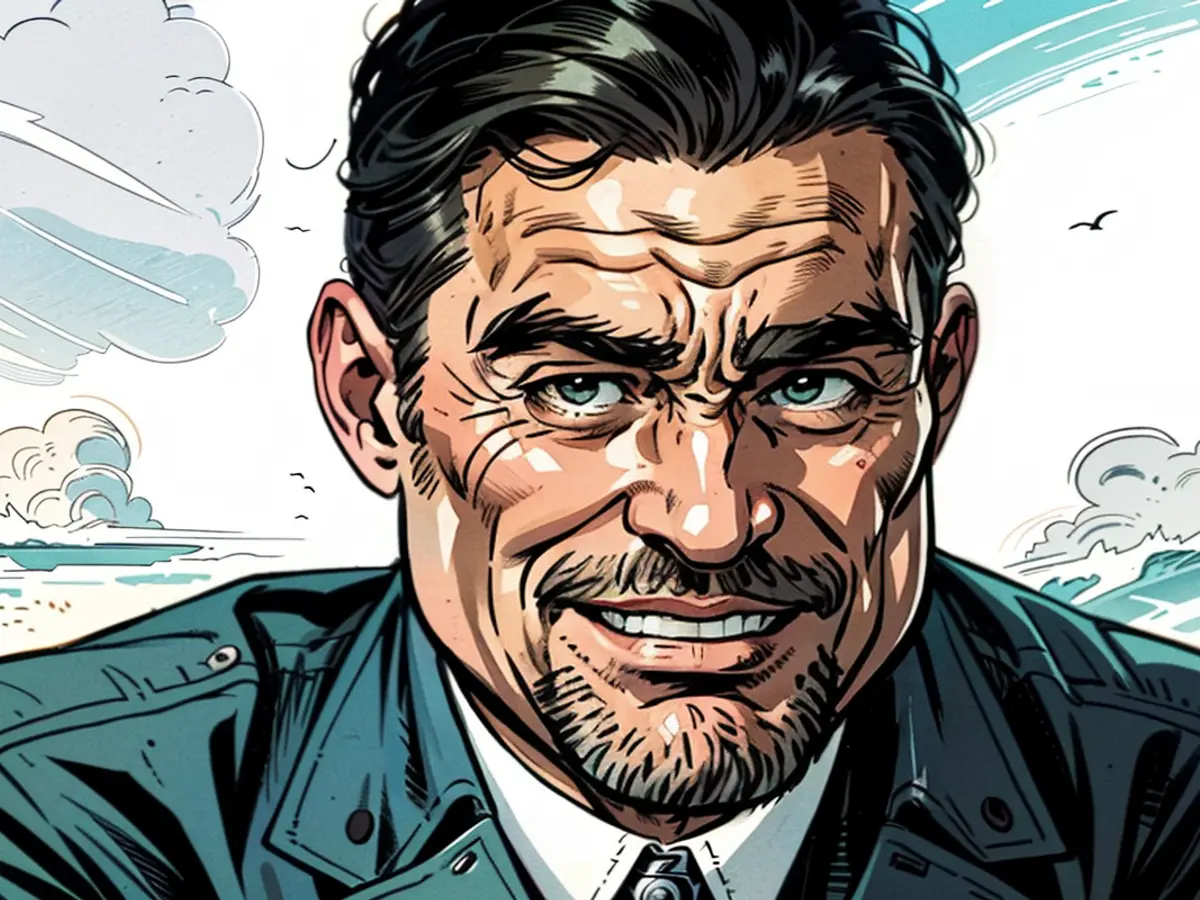Hemingway would be rather unsociable today
Ernest Hemingway was known as a literary giant and portrayed himself as a hedonist. In 1954, he received the Nobel Prize for works that are no longer in fashion. The life of the American born over 125 years ago ended tragically.
Had Ernest Hemingway still been alive, a modern society would have had to reckon with him: The American embodied the masculine image of a true adventurer and womanizer. The writer was a big-game hunter, war veteran, reporter, and deep-sea angler - and someone who couldn't resist bars or women.
On July 21, the Nobel laureate would have turned 125 years old. Sixty years ago, he took his own life. His life as a hedonist was marked by depressions and self-doubts. Suicide was not an isolated incident in Hemingway's family.
At the beginning of his life, young Ernest Miller Hemingway lacked nothing materially. Born in 1899 in a suburb of Chicago, he grew up in a secure and educated environment. However, to the disappointment of his parents, the young man threw away his privileges and decided to become a reporter in Kansas and an ambulance driver in the First World War.
Fascination for War
After a severe wound in Italy and a disappointed love, he returned and continued to write. At first, he wrote stories for newspapers, then reports, and eventually novels. With "Fiesta," Hemingway achieved a breakthrough in 1926. The book is best known for its depiction of the bullfighting in Pamplona, but it primarily revolves around the lives of Parisian artists, which unfolded in the cafes.
A prominent character in Kansas was a journalist, became an ambulance driver in Italy, suffered severe wounds there - and became impotent. The parallels to Hemingway's own life are apparent, but impotent? That was not Hemingway, at least not permanently, as three children came from his first two marriages. Fascinated was the writer by the all-consuming nature of war. In the Spanish Civil War, he was a war correspondent, crossed the English Channel with American troops during D-Day in June 1944, and experienced battles in French Normandy.
According to the Encyclopaedia Britannica's article on Hemingway: "He impressed, despite being a frontline journalist, the soldiers not only as a brave man in battle but also as a genuine expert in military matters, guerrilla activities, and information gathering." Among his friends, however, the writer was also known as mentally fragile. As a driven man, who sought relief in alcohol, but only made things worse.
Literarily out of fashion
The "New York Times" called him the "most important writer since the death of William Shakespeare" in 1950. Four years later, he received the Literature Nobel Prize - long overdue, in the opinion of his admirers and his own. Today, he is viewed more critically, and his works no longer fit well into the 21st century. His works, like those of other broad-shouldered writers such as Jack London, Irwin Shaw, and Norman Mailer, are out of fashion due to their portrayal of gender roles.
When Hemingway was 29 years old, his father took his own life. This burden stayed with him throughout his life, along with depressions, pressure to succeed, and alcohol. At that time, they treated it with electroshocks. Added to this was a paranoia: Hemingway had befriended the Cuban revolutionary leader Fidel Castro, but always ignored his atrocities. In his later years, he was convinced that the FBI was monitoring every step he took.
On July 2, 1961, Hemingway took his life with his favorite shotgun. "An accident," the family explained first. Years later, his fourth wife Mary admitted that it was a suicide. This came as a surprise to no one anymore. It was also not an isolated case in Hemingway's family: His sister Ursula (1966), his brother Leicester (1982), and his granddaughter Margaux (1996) also took their lives.
In the realm of international literature, Ernest Hemingway's works became less popular, struggling to fit into the contemporary 21st century. Despite this shift, Hemingway's influence on the literature scene was significant, earning him the Nobel Prize for Literature in 1954, six decades prior to his 125th birthday on July 21.
Hemingway's literary impact extended beyond the United States, with his works such as "Fiesta" and his journalistic coverage of wars, gaining recognition and respect in international circles.






